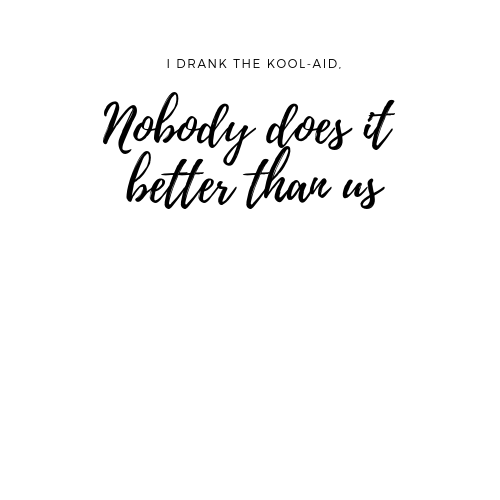By Tomas Kasza You might have heard that the first rule of contract research organizations (CROs) is you don’t talk about contract research organizations (CROs). THAT’S A LIE! It turns out that employees of CROs are excited to discuss their career knowledge with PhD and post-doctoral level academic researchers. CROs represent a great opportunity for PhD level scientists to transition from academia to industry. CROs provide essential support, generate fantastic science, and create quality products for the large biotechnology and corporate agencies that they contract with. CROs fill a significant niche by ensuring that pharmaceutical and biotechnology businesses run smoothly. Large biotechnology firms and corporate agencies want to make money by developing products. These products often require expertise, services, and infrastructure that is not available or is not cost-effective to create within the company. To address these problems, such companies employ CROs which create the desired products or provide services at a reduced cost, thus increasing company revenue. Examples of services CROs can provide are support for different stages of clinical trials management, manufacturing of seasonal medications and products, and product development. While the iJOBS leadership continues to draw fantastic and diverse sets of panelists for its events, I thought the panelists at this event were particularly great: Dr. Bill Hanlon- Group President, Clinical Development and Commercialization Services at Covance, LabCorp’s drug development business Dr. Sujoy Dutta- Divisional Director Experimental Biology (BBC PRC), Envigo Dr. Gregory Bannish- Head of Flow Cytometry, Champions Oncology Dr. Tifani McCann- Vice President Global Head of Biostatistics and Data Analytics, Covance Dr. Ellen McGlinchey- Research Scientist I, Study Director, Charles River Laboratories Based on the job titles for each respective panelist, it was clear that there was a wealth of experience, and as such, the first question was for each panelist to describe their career progression. What really struck me about each of their stories was when they discussed the things they had learned during their career. Most PhD students assume that learning is essentially completed during our graduate careers, and upon completion of the program, our expertise will make everything easier in the following job. Listening to the panelists’ professional histories made me realize how that statement was false, a PhD degree gives you tools to continually learn new things in pursuit of something better. Each panelist was more open than I expected about their own on-going education and their attempts to create opportunities for further growth and development. Their discussion revealed the importance of embracing new opportunities and the pursuit of knowledge as essential skills for a successful professional researcher. Here are some insightful quotes that explore what the speakers shared:  The quote, spoken by one of the panelists, underscored the panelists’ openness to discussing their own paradigm shifts. “Nobody does it better than us” refers to the panelist’s desire to think that while they worked in industry, the company they worked for did the best work with the highest quality. This panelist bought into the idea that their company was superior at performing the research, which contributed to an inherent arrogance within the company. Since then, this panelist has learned that there is quality research conducted at many different types of pharmaceutical and biotechnology companies. It was amazing to realize how limiting an assumption like this can be when making career decisions about which companies to join. It seems like there are always opportunities to perform great science.
The quote, spoken by one of the panelists, underscored the panelists’ openness to discussing their own paradigm shifts. “Nobody does it better than us” refers to the panelist’s desire to think that while they worked in industry, the company they worked for did the best work with the highest quality. This panelist bought into the idea that their company was superior at performing the research, which contributed to an inherent arrogance within the company. Since then, this panelist has learned that there is quality research conducted at many different types of pharmaceutical and biotechnology companies. It was amazing to realize how limiting an assumption like this can be when making career decisions about which companies to join. It seems like there are always opportunities to perform great science.  The above quote highlights the current state of career motility within the pharmaceutical world. Most people will not typically follow a linear and upward trajectory throughout their career but will instead switch positions within a company or move between companies. These lateral moves are orchestrated to achieve professional and personal goals. The goal of these types of moves is not necessarily to move up but rather to create a niche for you to occupy. It seemed like the goal of these moves was not to increase a salary but to pursue more meaningful work.
The above quote highlights the current state of career motility within the pharmaceutical world. Most people will not typically follow a linear and upward trajectory throughout their career but will instead switch positions within a company or move between companies. These lateral moves are orchestrated to achieve professional and personal goals. The goal of these types of moves is not necessarily to move up but rather to create a niche for you to occupy. It seemed like the goal of these moves was not to increase a salary but to pursue more meaningful work.  I wanted to list some other observations I made during the panel:
I wanted to list some other observations I made during the panel:
- Communication skills are crucial if you decide to work within a CRO, as you will have to create an environment of trust between yourself, your boss, and the clients. This means understanding the project history and treating it like your own. You will also be working on many different projects at the same time, many more than you are working on during your PhD. It is essential to prioritize each project and communicate with all of the team members you are working with, which includes reaching a clear understanding of the goals that have to be met for each project.
- The first transition is always difficult- as in your first job will include a huge learning curve and mindset adjustment. Fortunately, you have a PhD! This should give you the confidence to approach difficult problems with your knowledge toolkit. CROs are also great places to begin this transition because they are currently expanding and hiring fresh PhDs!
Coming to iJOBS career panels are great networking opportunities to get to that first difficult transition, so make every effort to come to all of our iJOBS career panels! Edits and contributions were made by Huri Mücahit and Aminat Saliu Musah